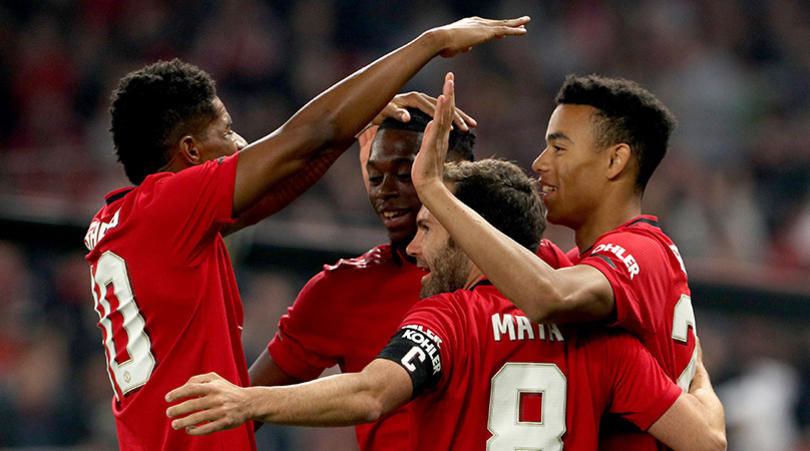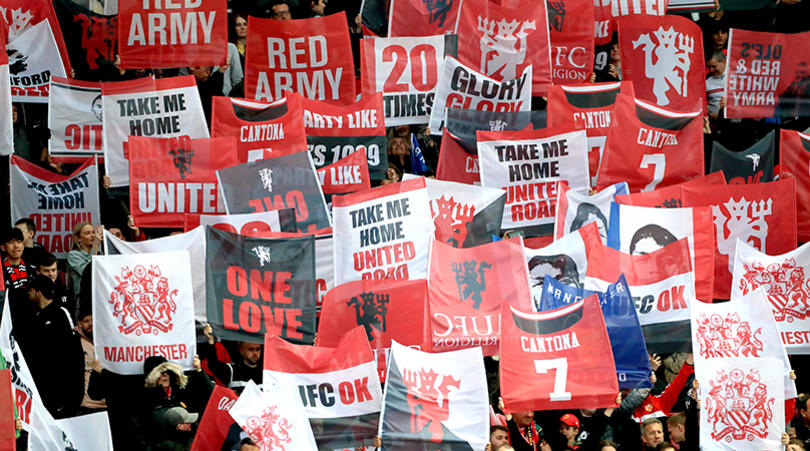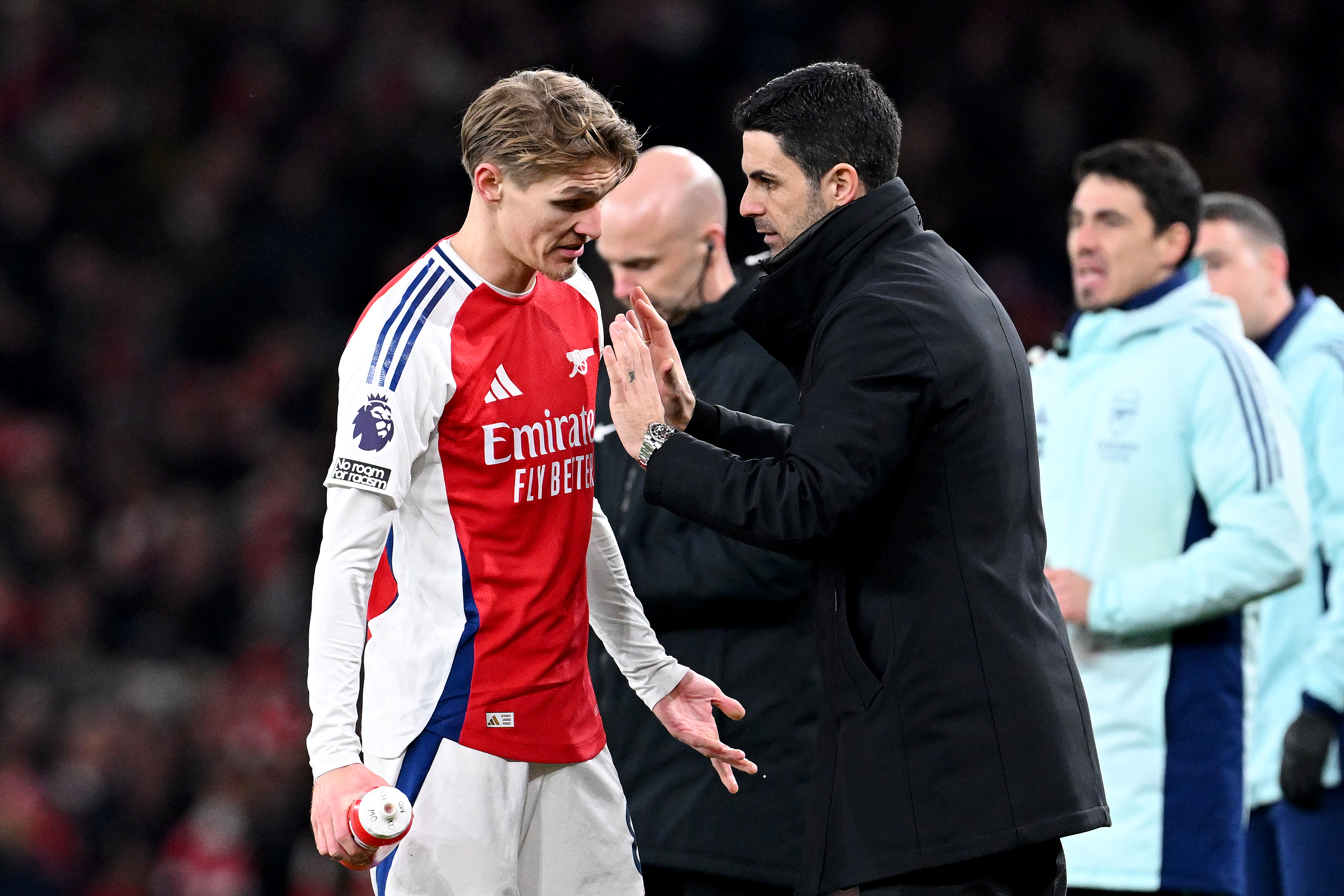Andy Mitten column: How it works inside Manchester United's post-match mixed zone
You can learn a lot about footballers by how they behave in the short distance between changing room and stadium exit. And sometimes, you can even get a decent interview
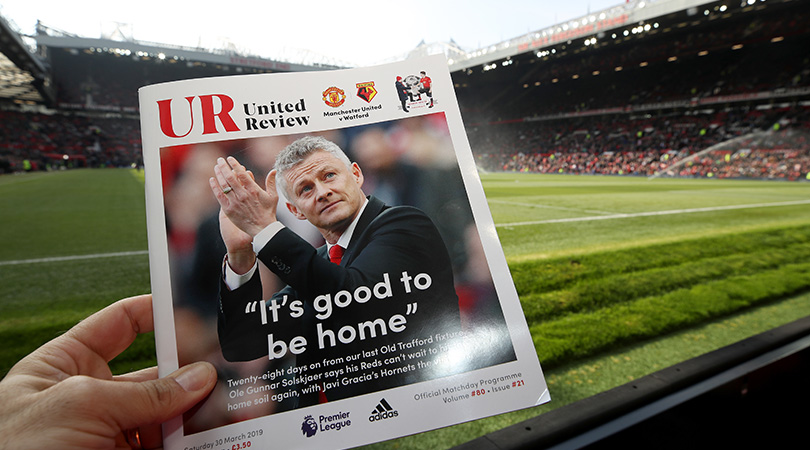
The mixed zone, where players talk to journalists after a game, is a crucial, chaotic and frustrating place for a football reporter. It’s an odd, artificial environment where you can be one on one with a player for an hour on a Thursday, then be poker faced by the same person two days later as they only see a wall of journalists.
It can drive you mad when you go to Eindhoven or Moscow and none of the players stop to speak on the record because their team has lost. Or when the likes of Nick Powell look at you like you’re a piece of shit after Wolsfburg beat Manchester United and you've politely asked for a word. And while he was well within his right to do that, I knew instantly that he’d never make it as a United player.
Players can go through their entire career trying to avoid the media mixed zones and then become the most personable and interesting individuals when they stop playing. Andy Cole and Dimitar Berbatov are two good examples of that.
The mixed zone is a big part of my bread and butter – the Russian roulette of football journalism, will they stop or won’t they? – so I made my way there after Manchester United played Chelsea on Sunday.
Old Trafford’s is located between the players’ tunnel and the dressing rooms under the Stretford End. A plaque dedicated to Sir Matt Busby is on the wall outside. The £9,000 cost was met by supporters in the mid-1990s at a time when there was no commemoration of what he had done for the club. Working closely with the Busby family, a prominent fan called Johnny Flacks spearheaded a campaign on behalf of United’s Independent Supporters’ Association. Flacks died earlier this year, but his hard work is there to be seen in a beautiful and huge commemorative tablet. In front of it, hundreds of fans waited for the players behind crash barriers and by the Chelsea coach. They wanted selfies and some of them got lucky. Players generally oblige, but they can’t please everyone.
Security is tight. It needs to be. Earlier this year, I saw one 40-something Norwegian United fan completely overcome when he saw his compatriot Ole Gunnar Solskjaer. He rushed a barrier and ran towards his target before being stopped and escorted back like an overenthusiastic, crowd-surfing teen at a concert. He stood shaking, overcome at the thought of breathing the same air as Solskjaer.
On Sunday, the waiting fans chanted “we want Paul” for Pogba. They were families and football tourists rather than longer-in-the-tooth fans who still need to be won over after he suggested he wants to leave in the summer, but the reception still tells you something.
Get FourFourTwo Newsletter
The best features, fun and footballing quizzes, straight to your inbox every week.
Inside, the mixed zone was expectant. It’s busiest after European games, better organised after league games. United run it well – far better than, say, the organisers of the pre-season tour games where hundreds are routinely let in: competition winners, sponsors, friends of sponsors. They want photos. It completely changes the dynamic; a player would rather smile for a fan picture than be asked a challenging question by a journalist.
I was waiting to speak to Andreas Pereira, the Belgium-born Brazilian who’d started against Chelsea. After a mediocre first half when United’s midfield was at times overrun and he barely touched the ball, he improved significantly after the break and set up the second goal. He’s one of the best crossers at the club, and one of the hardest workers. He takes corners and free-kicks well, and probably needs a run in the team. Will he get one? Well, it was up to me to ask him questions like that.
Andreas, 23, was punctual by Brazilian standards – meaning he was the last player to leave the dressing room. So I lost an hour where I could have been writing or asking Solskjaer questions in the press conference. I’ve mastered the art of one-handed typing into a laptop against a crush barrier, or while sitting on the ground inside or outside a stadium, but it’s far from ideal. Besides, I had no idea when he’d come out and didn’t want to be lost in words if he did. Like in Oslo, when I wanted to speak to Marcos Rojo and missed him as I was asked to take a photo for a couple in the mixed zone.
But Norway had its compensations. Another player came to speak to me off the record and said: “Trust me, we'll smash Chelsea.” He was absolutely right and I admired his confidence, but I doubt you could find any United fans who would have thought similar at the time.
As I waited on Sunday, the mixed zone was a hive of activity. The managers and some players are obliged to meet contractual obligations with broadcasters or rights holders who pay a fortune to cover the Premier League. Marcus Rashford did seven interviews after Sunday’s match. It’s perhaps understandable that he didn’t want to speak to journalists from the free press – those not obliged to be positive but essential for the health of football.
And here come the players. You try to engage. Asked for a quick word once, former United captain Martin Buchan quipped, “velocity”. Such humour is rare. The players who stop all the time get the piss taken out of them as media whores by team-mates, while those who never stop get hammered for not taking their share of the responsibility to speak to the people who pay their wages.
Naturally, the United players were clearly buzzing; Chelsea's less predisposed to front up and face difficult questions. Manager Frank Lampard did most of that – he’s got the manner exactly right for dealing with disaster.
David de Gea walks past. I interviewed him in Spanish when he first joined United and a few times after, but he’s media-averse.
“Any chance of an interview within the next five years?” I asked, smiling.
“Let’s see,” he replied in Spanish, grinning back at me. He'll do next to nothing when he’s around the time of a contract negotiations, since it could weaken his hand.
De Gea and Juan Mata (who usually stops for a word, even if it’s off the record – he is just a very nice guy) were chatting to their compatriot Cesar Azpilicueta. The zone is often the only place where players get to meet face to face before they head to their respective team buses. Thanks to help from Spurs, I’d agreed to speak to Moussa Sissoka after a game against Juventus in Singapore recently. He was great, but I’d had to wait until he finished a long conversation with Juventus’ French players (and friends of his) Blaise Matuidi and Adrien Rabiot first.
As my man still hadn’t appeared, I went over to goalkeepers Sergio Romero and Joel Pereira. Neither would be expected to speak to media since they hadn’t played against Chelsea, so we just caught up.
I’d been in Setubal, Jose Mourinho’s hometown, last November to write about him and planned to interview keeper Pereira – known to his team-mates as ‘The Cat’. I know some players better than others, and I didn’t know him. I went through his club. A poor press office meant it would have been easier to build a bridge made of jelly from Setubal to New York. It was the only interview I didn’t get last year – and he’s Manchester United’s third-choice goalkeeper. He said he’d have news shortly about what he’d be doing this year. On Tuesday, he signed on loan forHeartsin Edinburgh. I suppose an exclusive for me then would have put him in breach of something.
Paul Pogba spoke off the record to some French journalists he knows well. Then he was asked to speak to some English journalists. He did – hence the stories about his future on Monday. Pogba’s brother, who plays in Spain’s regional third division, was there with him.
I thought I saw Romelu Lukaku in an Inter tracksuit saying goodbye to his team-mates – but couldn’t absolutely swear to it.
And then everyone went. The stewards wanted to get home for their tea, but still no Andreas. The waiting is the worst part of being a football journalist. I checked that he was still inside and that I hadn’t missed him. He was still there. And he came out beaming and gave a decent interview – well, decent for a mixed zone, even if I felt as though I’d run a marathon wearing lead boots.
While you're here, why not take advantage of our brilliant subscribers' offer? Get 5 issues of the world's greatest football magazine for £5 – the game's greatest stories and finest journalism direct to your door for less than a pint in London. Cheers!
NOW READ…
OPINION Why Premier League clubs may have actually spent more intelligently than ever before in summer 2019
WATCH Premier League live stream 2019/20: how to watch every game from anywhere in the world
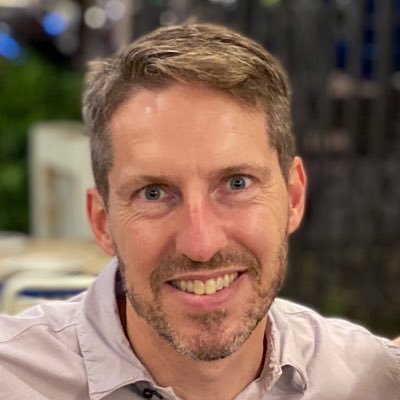
Andy Mitten is Editor at Large of FourFourTwo, interviewing the likes of Lionel Messi, Eric Cantona, Sir Alex Ferguson and Diego Maradona for the magazine. He also founded and is editor of United We Stand, the Manchester United fanzine, and contributes to a number of publications, including GQ, the BBC and The Athletic.
